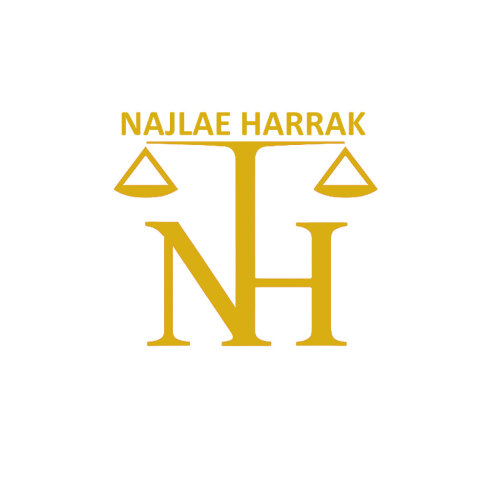Best Adoption Lawyers in Tétouan
Share your needs with us, get contacted by law firms.
Free. Takes 2 min.
Free Guide to Hiring a Family Lawyer
List of the best lawyers in Tétouan, Morocco
About Adoption Law in Tétouan, Morocco
In Morocco, including Tétouan, full adoption that severs a child from his or her lineage is not permitted. Instead, the legal framework provides for kafala, which is a court-ordered form of guardianship and care for an abandoned or relinquished child. Kafala allows an individual or a couple to take responsibility for a child’s upbringing, education, health, and maintenance, without creating a new filiation or inheritance by default.
The kafala regime is applied by local courts in Tétouan under national laws and judicial practice. It focuses on the best interests of the child, with oversight by the Public Prosecutor and the juvenile or family judge. Many practical steps are handled at the Court of First Instance in Tétouan, often with collaboration from social services and licensed child welfare institutions in the region.
Why You May Need a Lawyer
A lawyer can help you understand whether your situation fits the kafala legal framework, what documents you need, and how to navigate court procedures and timelines. Because kafala does not create filiation or automatic inheritance, a lawyer can also advise on complementary steps, such as civil registration, wills, permission to travel, and ongoing reporting obligations.
Legal assistance is especially useful if you are a foreign resident in Morocco, if you have complex personal circumstances, if you need to coordinate with authorities in another country for immigration or recognition of the kafala order, or if you are facing objections or requests for additional safeguards from the court or prosecution service. An experienced local lawyer can communicate with the juvenile section, social workers, and child welfare institutions in Tétouan to keep your case on track.
Local Laws Overview
Morocco’s Family Code does not permit full adoption that creates new filiation. The applicable mechanism is kafala, which is governed by national legislation on the care of abandoned children and implemented by the courts. In a kafala, the kafil, meaning the guardian, undertakes to provide for the child and to protect his or her rights. The biological filiation remains unchanged, and if it is unknown, it is recorded as such in the civil registry.
Eligibility typically requires that the kafil be of legal age, of good moral character, financially capable, medically fit, and able to provide suitable housing. If the kafil is married, consent of the spouse is commonly required. Moroccan practice generally requires the kafil to be Muslim. Foreign applicants often need to demonstrate lawful residence in Morocco, provide a suitability or home study report from their home country, and agree to post-placement reporting and child protection follow-up if the child will reside abroad. Local authorities in Tétouan will expect original or certified documents, translated into Arabic if needed.
The process involves identification of an abandoned or relinquished child by a licensed institution or hospital, coordination with the Public Prosecutor, a social inquiry into the prospective kafil’s circumstances, and a hearing before the juvenile or family judge at the Court of First Instance in Tétouan. If granted, the court issues a kafala order. The child’s details are entered or updated in the civil registry, the kafil assumes day-to-day parental responsibilities, and the court may impose reporting duties. To take the child outside Morocco, specific judicial authorization is commonly required, and some courts require periodic welfare reports from consulates or social services abroad.
Because kafala does not establish filiation, it does not create automatic inheritance rights. Inheritance and family name rules follow Moroccan law. Some kafils use a will up to the legally permitted share to provide for the child. Any change of name, travel permissions, or later changes in guardianship require judicial approval.
Frequently Asked Questions
Is adoption legal in Tétouan
Full adoption that changes a child’s filiation is not allowed in Morocco. The lawful pathway is kafala, a court-ordered guardianship. It gives you care and custody responsibilities but does not create legal filiation or automatic inheritance.
What is kafala and how is it different from adoption
Kafala is a legal commitment to raise and protect a child. It grants custody-like rights and duties but does not sever the child’s original lineage or create a new parent-child filiation. The child usually keeps Moroccan nationality and civil status, and inheritance does not flow automatically from kafil to child unless arranged by will within legal limits.
Who can apply for kafala in Tétouan
Moroccan citizens and, in practice, foreign residents who meet legal and moral suitability standards can apply. Common criteria include being Muslim, financially stable, medically fit, and able to provide a safe home. Married applicants usually need spousal consent. Single applicants may be eligible if they meet the same standards.
Can non-Muslims receive kafala
Moroccan courts commonly require the kafil to be Muslim. Non-Muslim applicants typically face legal and practical obstacles and are often not approved. A local lawyer can assess current court practice in Tétouan based on your circumstances.
What documents are usually required
Expect to provide identification documents, proof of residence, criminal record certificates, medical fitness certificates, proof of income and housing, marital status documents, and references. Foreigners usually need legalized translations, a home study or suitability certificate from their home country, and a commitment to follow reporting requirements. Exact lists vary by court and case, so confirm locally.
How long does the kafala process take
Timelines vary with document readiness, court schedules, social inquiries, and the availability of a matching child. Many cases take several months. Cross-border elements, extra verifications, or complex personal situations can extend the timeline.
Can I change the child’s name
Any change to names or civil status requires judicial approval and must comply with Moroccan civil registry rules. Because kafala does not create filiation, the child does not automatically take the kafil’s family name. The court will guide what is permissible in the civil registry.
Can the child inherit from me
Kafala does not create automatic inheritance. A kafil who wishes to provide financially for the child can consider a will within the limits set by Moroccan succession law. Consult a lawyer to structure lawful provisions.
Can I take the child abroad after kafala is granted
Usually, you need specific authorization from the Moroccan court to take the child outside the country. If the child resides abroad, the court may require regular welfare reports through consular channels or competent social services. You must also satisfy the immigration rules of the destination country, which may not treat kafala as adoption.
Do I need a lawyer to obtain kafala
Having a lawyer is not always mandatory, but it is highly advisable. A local lawyer in Tétouan can ensure your file is complete, liaise with the Public Prosecutor and the juvenile section, handle translations and legalizations, and address reporting and travel authorizations. This reduces delays and helps avoid preventable refusals.
Additional Resources
Court of First Instance of Tétouan - Juvenile and family section responsible for kafala orders and related hearings. The clerk’s office can inform you about filing requirements and hearing dates.
Public Prosecutor at the Court of First Instance of Tétouan - Oversees child protection matters, initiates or reviews abandonment declarations, and participates in kafala proceedings.
Local Delegation of Entraide Nationale in Tétouan - Coordinates with child welfare institutions and assists with social inquiries related to kafala.
Child Welfare Institutions and Licensed Orphanages in Tétouan - Care for abandoned or relinquished children and coordinate with courts and social services.
Ministry of Justice - Directorate of Civil Affairs and child protection units provide policy guidance and may oversee post-placement reporting frameworks, especially for cross-border cases.
Tétouan Bar Association - Can refer you to lawyers experienced in family law and kafala procedures.
Civil Registry Offices in Tétouan - Handle registration of the child’s civil status, entries ordered by the court, and issuance of civil status extracts.
Next Steps
Clarify your eligibility and goals. Decide whether kafala is the appropriate legal route for your situation. If you are a foreign resident, confirm residence status and any home country requirements at the outset.
Consult a local lawyer in Tétouan experienced in kafala. Ask for a tailored document checklist, expected timelines, and likely court expectations in the juvenile section. If cross-border residence is planned, request guidance on travel authorization and reporting duties.
Gather your documentation. Obtain identification, criminal record certificates, medical certificates, proof of income and housing, marital documents, and translated or legalized papers if you are a foreigner. Start any required home study early.
Coordinate with social services and child welfare institutions. Your lawyer can help initiate the social inquiry and ensure your home assessment and interviews are scheduled and completed.
File your application with the Court of First Instance in Tétouan. Attend hearings, respond promptly to requests from the judge or prosecutor, and provide any supplemental documents without delay.
After the kafala order, complete civil registry steps, comply with any reporting obligations, and obtain judicial authorization for any international travel. Keep certified copies of all orders and registry extracts for administrative and immigration processes.
Maintain ongoing legal and social support. Review inheritance planning, permissions for schooling or healthcare, and any updates the court may require. A continuing relationship with your lawyer and local institutions will help ensure the child’s welfare and your compliance with Moroccan law.
Lawzana helps you find the best lawyers and law firms in Tétouan through a curated and pre-screened list of qualified legal professionals. Our platform offers rankings and detailed profiles of attorneys and law firms, allowing you to compare based on practice areas, including Adoption, experience, and client feedback.
Each profile includes a description of the firm's areas of practice, client reviews, team members and partners, year of establishment, spoken languages, office locations, contact information, social media presence, and any published articles or resources. Most firms on our platform speak English and are experienced in both local and international legal matters.
Get a quote from top-rated law firms in Tétouan, Morocco — quickly, securely, and without unnecessary hassle.
Disclaimer:
The information provided on this page is for general informational purposes only and does not constitute legal advice. While we strive to ensure the accuracy and relevance of the content, legal information may change over time, and interpretations of the law can vary. You should always consult with a qualified legal professional for advice specific to your situation.
We disclaim all liability for actions taken or not taken based on the content of this page. If you believe any information is incorrect or outdated, please contact us, and we will review and update it where appropriate.









